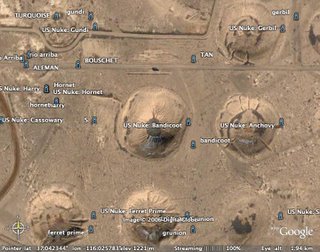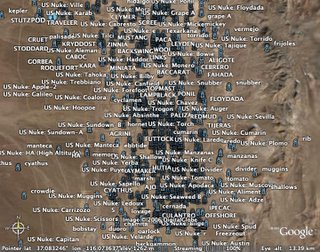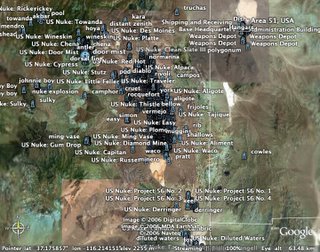
Today was refreshing. I took a walk to Cowley Road with Margaret and was excited by what I saw: intriguing looking ethnic restaurants, the brewery where the Hobgoblin Ale enjoyed at the bloggers’ gathering is made, as well as plenty of bike shops, used book stores, and small grocery stores. I am not sure whether my initial comparison to Commercial Drive is an accurate one. The balance between businesses is quite different (though the profusion of relatively inexpensive barber shops has rekindled hopes that my hair will soon return to a manageable length). The not-inconsiderable distance from Wadham to the area has made me think again about getting a bicycle. They had some used ones available for about eighty quid. I am not sure how much it would cost to have my bike in Vancouver sent by the cheapest form of surface mail, but that is worth looking into as an alternative.
Today also involved a lot of non-academic reading. I read a very interesting thesis about how John Walker – a spy in the American Navy – conducted an incredibly effective espionage campaign on behalf of the Soviet Union over a period of years. In particular, it is illustrative of the kind of huge security failures that can take place when there is inadequate communication between different agencies, as well as excessive secrecy applied in the wrong places. I also read from Terry Pratchett’s Wyrd Sisters, which Nora passed on to me when she found out that I was reading the sequel: Witches Abroad.
I also purchased the Philip Pullman edition of Paradise Lost and read the introduction and first two books. Reading Book II to Nora the other day reminded me what an engaging and enjoyable poem it is, and how worthwhile it will be, in the long run, to have a nice copy. The only bits I have a recall particularly well are the second book and the invocation to the Muse. I am not entirely certain of whether it is the right sort of reading material to mark out the spaces between stats and the study of international history in the interwar period. In the end, though, what could go wrong?
I called Lindi this evening to wish her a happy birthday. It was good to speak with her. She is still working on research for NASA, though her boss is apparently doing classified work for the Department of Homeland Security, as well. In ages of the world long past, Lindi and I were lab partners for Biology 10 – back at our mutual high school. When I was in first year, she lived in the tower adjoining mine in the Totem Park complex at UBC. She had considerable skill at playing the piano, as well as miraculous abilities of cooking better food than the cafeteria could offer, using only a miniature fridge and a toaster oven. Despite the fact that we share an enthusiasm for tramping about in the wilds of British Columbia, I can’t remember a time when we actually managed to do so together.
Surrounded, for the second night in a row, with the bursting and banging of fireworks and self-charged with the role of reporting on life in Oxford, I set out to find Guy Fawkes Night. I should have known better. I began heading southward, down Cornmarket and then St. Aldates, across the Folly Bridge and down Abingdon Street. I was following the boom and flash of explosions that always seemed about a kilometre and a half away: due South.
What I realized, eventually, is that that Guy Fawkes Day is a decentralized holiday. My efforts to find it fared no better than the efforts of Bilbo and the dwarves in The Hobbit to crash the forest party of the elves. Guy Fawkes Day happens all around, but nowhere where people really congregate – at least, nowhere I could find. Several times, once I was about three kilometres out of Oxford, I passed a field from which a huddled group let forth a few volleys of fireworks, but there were no bonfires to be found and nothing with the appearance of a thing that a stranger can just wander into.
This is the antithesis of Vancouver’s Symphony of Fire: in which enormous masses of people congregate in the same place to watch a large, centrally provided show of pyrotechnics. It’s a different kind of community in Vancouver, I suppose: one too large for an individual to play a role in defining, but one inclusive enough that it can just roll along, adding new people to its bulk.
All that said, the night is yet young – the JCR bop that is to occur tonight hasn’t even begun, though I already have a good sense of what it will involve. Despite the very heavy police presence that Friday and Saturday nights seem to bring to the centre of Oxford, it can be an extremely rowdy place. Not in the sense of violence, but rather extreme noisesomness and general low-level harassment of passers-by.
And in luxurious cities, where the noise
Of riot ascends above their loftiest towers,
And injury and outrage: and when night
Darkens the streets, then wander forth the sons
Of Belial, flown with insolence and wine.
(PL I:498)
Perhaps, with the passage of a bit more time, I will make another attempt to locate a Guy Fawkes bonfire. It would definitely help to have some inside information from a longer-term resident than myself. Likewise, it would be good to have someone to explore with. The cluster of people with whom I’ve spent the bulk of my time is really very small, and I soon begin to feel guilty for imposing upon them. I must widen my circle of social acquaintances, so as not to excessively press myself upon any of them.
PS. Here is an interesting video (Quicktime) of what you can manage if you are bold enough to attach a Mac Mini driven projector to the side of a Berlin subway car.





